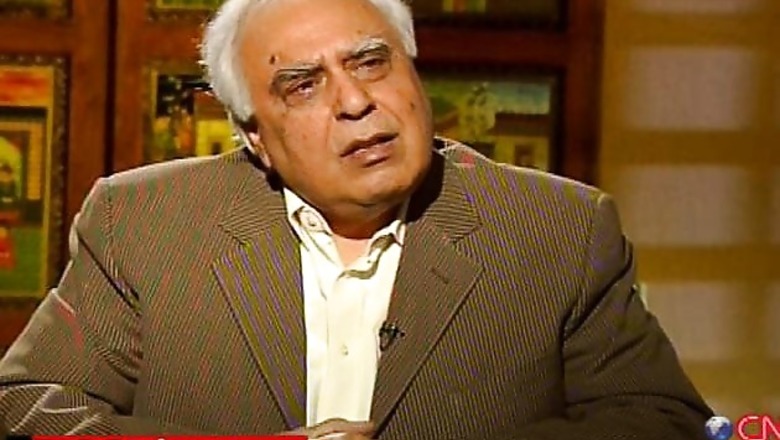
views
Washington: Rejecting criticism and virtually ruling out going back on the new proposal, the Union Human Resources Development Minister Kapil Sibal on Monday said the government has no intent to impinge on the autonomy of the Indian Institutes of Technologies (IITs).
Defending the decision to have one nationwide common entrance test, which is being opposed by IIT Kanpur among others, Sibal said this has been taken in accordance with the IIT Act passed by Parliament.
Sibal said this is a unanimous decision of the IIT Council.
"There is no intent to impact on the IIT system autonomy...the exam that is being contemplated is to be set by the IIT itself," Sibal told reporters when asked to comment on the controversy back home.
Sibal further said that the decision of the IIT Council was in tune with the international practices.
Sibal is leading a high-powered Indian delegation to co-chair the India-US education dialogue with the Secretary of State, Hillary Clinton.
Sibal had on May 28 announced that from 2013, aspiring candidates for IITs and other central institutes like NITs and IIITs will have to sit under a new format of common entrance test, which will also take the plus-two board results into consideration.
The Minister had claimed that it was approved without dissent at a council consisting of the IITs, the IIITs and the NITs.
Senate of the IIT-Kanpur has rejected the Centre's 'one-nation one-test' proposal and decided to conduct its own entrance exam from next year.
Sibal said that on his return, he would study the decisions being taken by the IIT Kanpur.
"This has nothing to do with the Government," he said noting that the decision has been taken in accordance with the IIT Act.
This would have no impact on the quality of the education in IITs.
The Minister was responding to questions after delivering his speech 'Education: US-India Collaboration' at an event organised jointly by the Carnegie Endowment for International Peace, a prestigious American think-tank based in Washington and Federation of Indian Chambers of Commerce and Industry (FICCI).
In his remarks, the Minister said India, having a young and dynamic population, is facing enormous challenge in the higher education sector, and in order to provide college education to all the country in the coming years as many as 800 new universities and 40,000 to 50,000 new colleges.
"It is not an easy task. It is a monumental task. But there are enormous opportunities there."




















Comments
0 comment